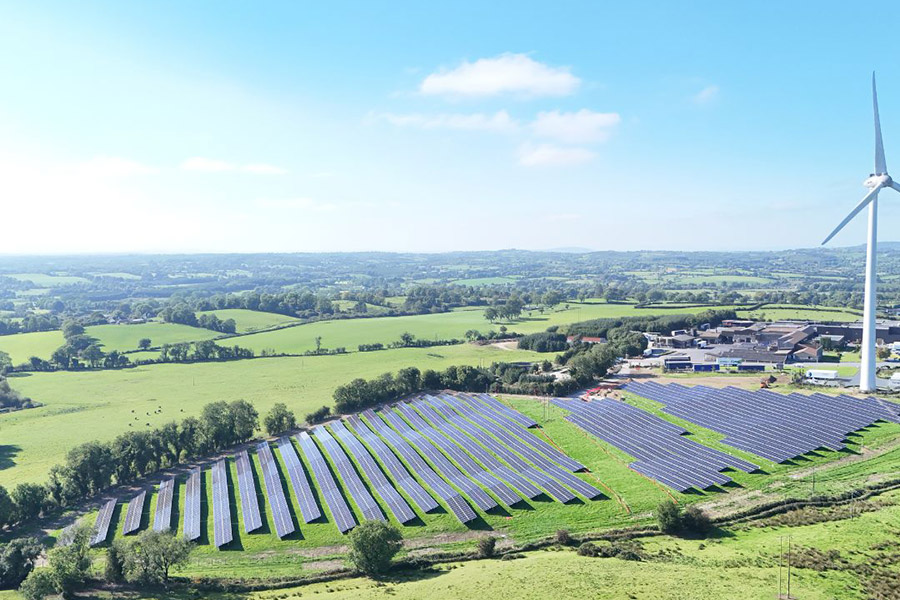Fossil fuels made up 81% of Ireland's energy supply according to the latest in-depth analysis of global energy data by KPMG.
Ireland currently ranks 8th globally for wind and solar as a share of total electricity generation
But the growth in electricity demand is still surpassing the development of renewables.
The analysis found that, despite notable advancements, Ireland still faces significant challenges in securing a sustainable energy future.
The Energy Institute, in collaboration with Kearney and KPMG, released the 74th edition of the Statistical Review of World Energy, offering a look at global energy data for 2024.
On a global level, the report notes: "In a year when average air temperatures consistently breached the 1.5°C warming threshold, global CO₂-equivalent emissions from energy rose by 1%, marking yet another record, the fourth in as many years.
"Wind and solar energy alone expanded by an impressive 16% in 2024, nine times faster than total energy demand.
"Yet this growth did not fully counterbalance rising demand elsewhere, with total fossil fuel use growing by just over 1%, highlighting a transition defined as much by disorder as by progress."
In Ireland, the report notes a decrease in emissions despite rising energy demand.
Emissions in the energy industries reduced by 8.9% in 2024, the third consecutive year a decrease was observed, partially due to an increase in electricity imports from Great Britain.
Transport emissions marginally decreased by 1.2% despite a 4.1% increase in the national fleet.
This is the first decrease in transport emissions since 2020 and is a result of increased adoption of biofuels and electricity.
In contrast, residential emissions increased by 4.9% in 2024, with consumption of all non-renewables excluding peat increasing.
However, fossil fuels remained Ireland’s primary energy source in 2024, accounting for 81.4% of the primary energy supply.
This corresponded to an increase of 0.7% from 2023, despite drops in coal and peat.
Ireland also remains heavily dependent on natural gas, which fuelled 42% of electricity generation in 2024.
"The statistical review shows that Ireland has the capability and resources to build on the successes delivered in 2024," said James Delahunt, Head of Energy & Natural Resources, KPMG in Ireland.
"However, growing strategic risks underscore the need to prioritise policies and initiatives that will efficiently and cost-effectively deliver renewables and system flexibility to phase fossil fuels out of the economy," he stated.
However, Ireland continues to face critical energy challenges, including security of supply concerns, rising electricity prices, and difficulties delivering major infrastructure projects.

The Temporary Emergency Generation Programme, intended to address supply concerns, has seen its budget balloon from €400m to an anticipated €1.3 bn.
Also, a planned Floating Regasification Storage Unit to facilitate LNG imports is estimated to cost an additional €900m.











